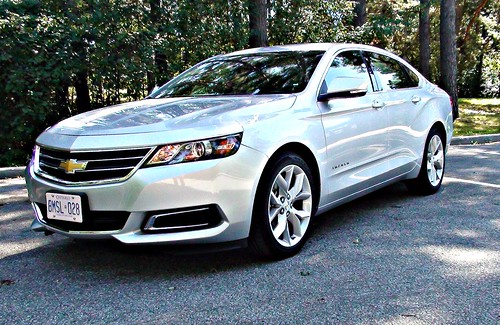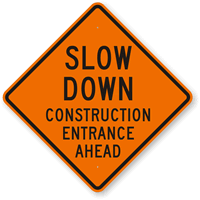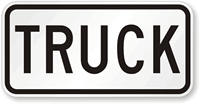Do collision warning systems spell trouble for drivers?
The National Highway Transport Safety Administration (NHTSA) is investigating 60,000 Chevrolet Impalas released this year. The reason? The vehicles’ crash avoidance system may have malfunctioned repeatedly, resulting in unexplained car stops.

A 2014 Chevrolet Impala. Image by Tino Rossini
Why the NHTSA is investigating
One driver said in his complaint that he was driving at 20 mph when “the brakes independently seized… The vehicle came to a complete stop, then eventually resumed proper function.”
The same thing happened to the same car the following day, but there were three warning beeps before the malfunction. The brakes seized independently again, and “…as a result, another vehicle crashed into the rear,” says the driver.
The Chevrolet Impala’s crash avoidance system “intervenes to apply the brakes in an effort to avoid the crash… [if] …the driver does not appear to react quickly enough or doesn’t react at all,” says manufacturer General Motors. The system uses radar to do its work.
Benefits of forward collision warning systems
The Highway Loss Data Institute’s research revealed that forward collision warning systems reduced insurance claims by 14%, hinting at their ability to mitigate crash risks. Systems tested for the research included those of Volvo, Acura and Mercedes-Benz.
The IIHS has tested collision warning systems, and compiled ratings to help consumers make informed decisions. “Our new ratings let consumers know which systems offer the most promise for the extra expense,” says David Zuby, chief research officer at the Insurance Institute of Highway Safety.
Drivers’ opinions
Although almost 63% of respondents in a recent survey by the University of Michigan’s Transportation Research Institute viewed such technology favorably, some were concerned about what would happen if the technology malfunctioned.
Although 62% of the respondents were at least somewhat interested in having this technology in their cars, nearly half of the drivers surveyed were unwilling to pay extra for it.
Notable recalls
If there are more incidents of this technology failing, car manufacturers could see more recalls. “A manufacturer must address a safety defect by conducting a safety recall, which requires the manufacturer to notify consumers and remedy the defect,” says Nathan Naylor, a spokesman for the highway safety agency.
In 2013, General Motors recalled some models of the Chevrolet Cruze (potential loss of braking assistance), Buick LaCrosse, Buick Regal and Chevrolet Malibu Eco (possibility of stalling and trunk fires).
The same year, Kia and Hyundai recalled nearly 1.9 million vehicles over a defective stop lamp switch. By law, a manufacturer must inform the NHTSA within five business days of learning about a problem if it plans a recall. Otherwise, it faces a penalty.
With technology only becoming more sensitive, recalls might be more frequent. Although the Chevrolet Impala’s collision avoidance feature’s slogan is “Always looking forward to watch your back,” we should be glad that the NHTSA is also watching ours.
Category: Automotive

















